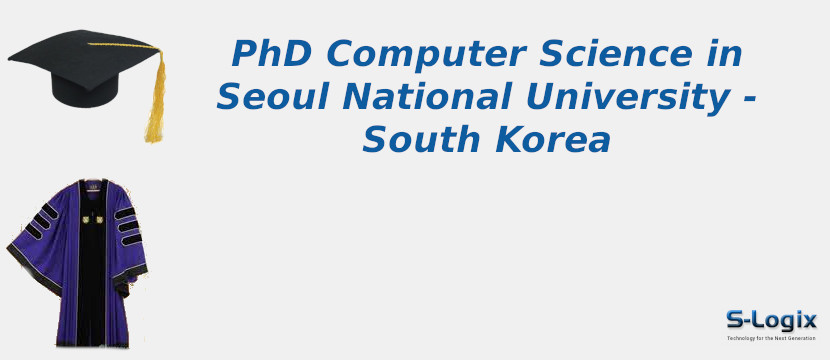Seoul National University, situated in South Korea, is one of the country-s premier institutions and a leader in research. Seoul National University was founded in 1946 and became a core center for research and innovation in academics, science, and technology.
Seoul National University-s research is carried out in various fields, such as science, engineering, medicine, and the humanities. Seoul National University is specifically famous for its research on the themes of artificial intelligence, robotics, and information technology.
The Seoul National University-s research is highly acclaimed and appreciated nationally and internationally. Seoul National University owns an autonomous, convergence education system intending to empower creativity and character to bring a vibrant intellectual community for the development of students.
Address: Seoul National University, 1 Gwanak-ro, Gwanak-gu, Seoul 08826, Republic of Korea
Phone: 82-2-880-6971, 6977
Email: snuadmit@snu.ac.kr
Website: https://en.snu.ac.kr
Undergraduate
• Artificial intelligence
• Computer Architecture and Embedded Systems
• Database and Big Data
• Graphics and Human-centered computing
• Network
• Software Foundation and Analysis
• System Software and Distributed Systems
• Theory and Financial Engineering
Artificial intelligence;
• Machine learning theory
• Computer vision
• Text mining
• Video analysis
• Recommendation agent
• Brain neural network analysis
• Ecosystem modeling
Computer Architecture and Embedded System;
• CPU architecture
• Memory Architecture
• Memory architecture
Database and Big Data;
• Big Data
• Databases
• Data Mining
• Machine Learning
• Deep Learning
• Machine learning performance
• Data managing and saving technology for various Database applications
• Information Searching
• Recommending System
• Natural Language Processing
• Graph analysis
Graphics and Human-centered computing:
• Shape modeling
• Multi-dimensional information visualization
• Image processing/ analysis
• Motion analysis and synthesis
• Interactive avatar control
• Intelligent virtual character
• User interface design
• Information visualization
Network
• Internet security and privacy
• Architecture design of the Internet
• The application of networking optimization of Artificial Intelligence technology
• The development of network virtualization technology
• The resource management of mobile/wireless communication
• The development of IoT communication protocol
• IoT system the analysis of communication traffic
• Blockchain
• Internet Authentication
• Privacy protection technology
Software Foundation and Analysis;
• Safe, reliable, & productive programming language
• Software engineering system
• Programming language theory
• Static analysis and verification
• Software engineering applications and tools
System Software and Distributed Systems;
• Hardware resource management
• Software platform technology
• Distributed/parallel system technology
• Artificial intelligence and big Research on data systems
Theory and Financial Engineering;
• Big data analysis algorithms
• Practical algorithms suitable for multicore and cache structures
• Genetic algorithms
• Architecture and Code Optimization Lab
• Big Data Analytics Lab
• Bio and Health Informatics Lab
• Biointelligence Lab
• Codesign And Parallel Processing Lab
• Computer Architecture and Embedded Systems Lab
• Computer Graphics and Image Processing Lab
• Computer Systems and Platforms Lab
• Computer Theory and Applications Lab
• Computing and Memory Architecture Lab
• Cryptography and Privacy Lab
• Data Mining Lab
• Database Systems Lab
• Distributed Computing Systems Lab
• Human-Centered Computer Systems Lab
• Human-Computer Interaction Lab
• Intelligent Data Systems Lab
• Language and Data Intelligence Lab
• Machine Learning Lab
• Mobile Computing and Communications Lab
• Movement Research Lab
• Network Convergence & Security Lab
• Optimization and Financial Engineering Lab
• Programming Research Lab
• Quantum Information and Quantum Computing Lab
• Real-time Ubiquitous System Lab
• Software Foundations Lab
• Software Platform Lab
• Systems Software and Architecture Lab
• Thunder Research Lab
• Vision and Learning Lab
• Visual Computing Lab
• AI Research Group
• Computer Architecture and Embedded System Research Group
• Database and Big Data Research Group
• Graphics and Human-centered computing research group
• Network Research Group
• Software Foundation and Analysis Group
• System Software and Distributed System Research Group
• Theory and Financial Engineering Research Group
• Seoul National University Graduate School of Convergence Science and Technology Scholarship Program
• Seoul National University Graduate School of Computer Science & Engineering Scholarship Program
• Seoul National University Graduate School of Business Administration Scholarship Program
• Seoul National University Graduate School of International Studies Scholarship Program
• Seoul National University Graduate School of Science and Technology Scholarship Program
• Seoul National University Research Fellowship Program
• Seoul National University International Student Scholarship Program
• Seoul National University International Postdoctoral Fellowship Program
• Seoul National University International Exchange Program
• Seoul National University Excellence in Research Awards
Funded projects in computer science at Seoul National University - South Korea
• Intelligent Human-Computer Interaction for Media Interaction
• Visual Information Processing for Autonomous Robotics
• Cyber Security and Privacy Technologies
• Next-Generation Network Technologies
• Intelligent Transportation Systems
Ph.D. computer science admission procedure and admission requirements at Seoul National University - South Korea
• Admission Requirements for Ph.D. computer science at Seoul National University - South Korea
• A Master-s degree in computer science, engineering, or a relevant field with a minimum grade point average (GPA) of 3.00
• A minimum of three years of professional experience in computer science, engineering, or a relevant field
• A minimum score of 550 on the TOEFL iBT or a minimum score of 6.0 on the IELTS for international applicants
• A statement of purpose
• Two letters of recommendation
